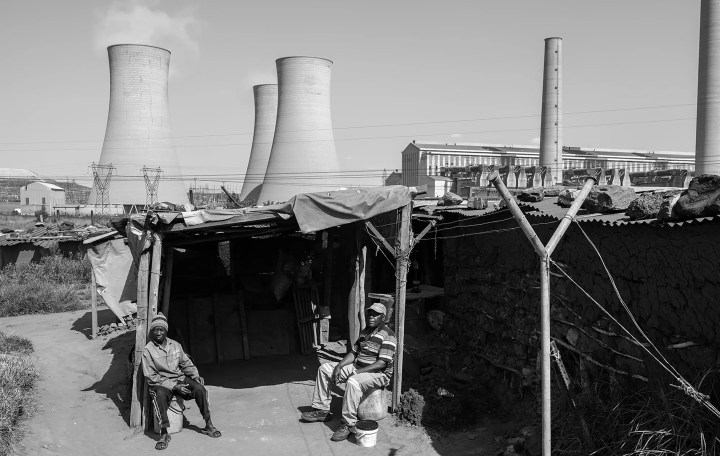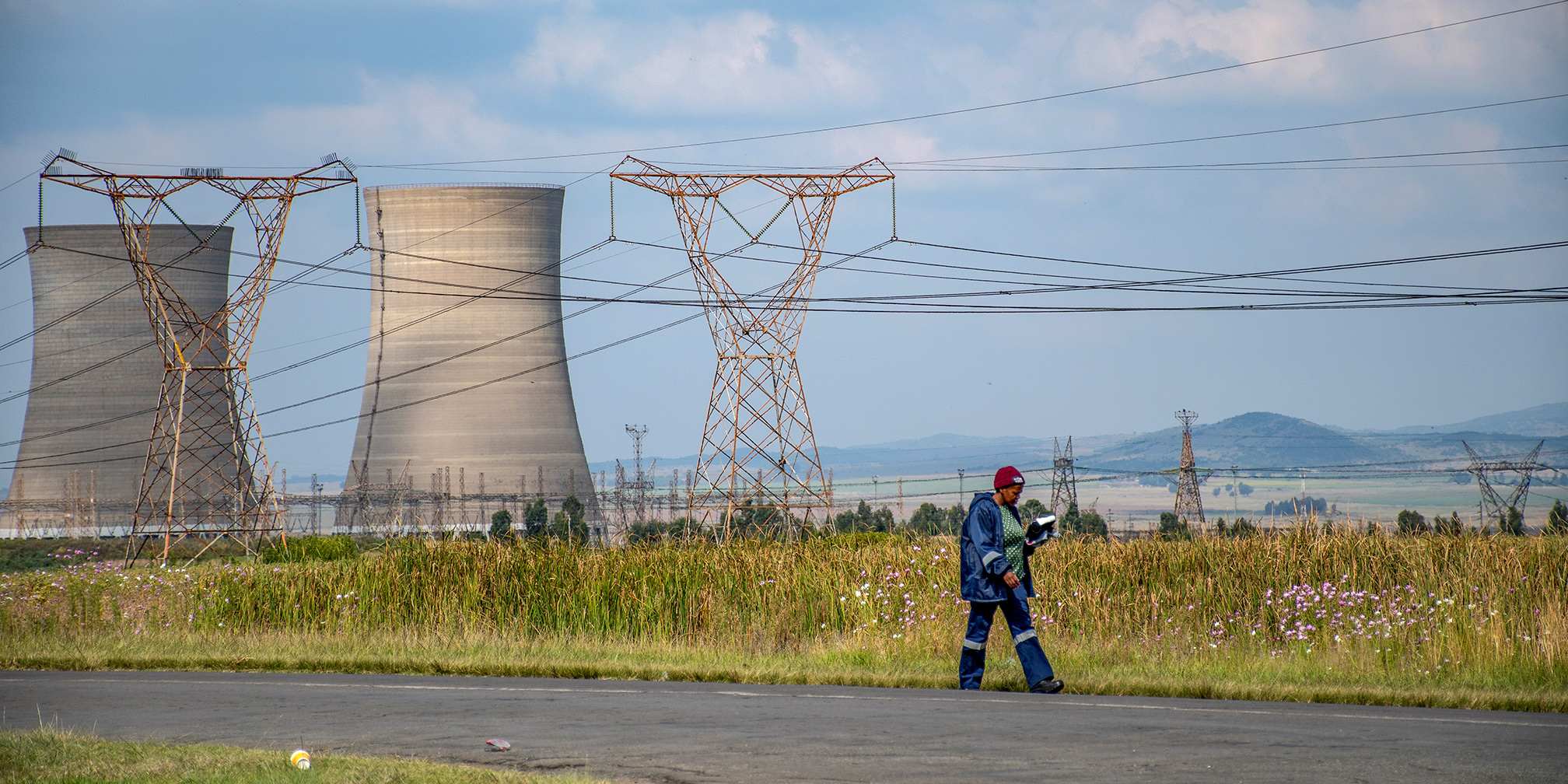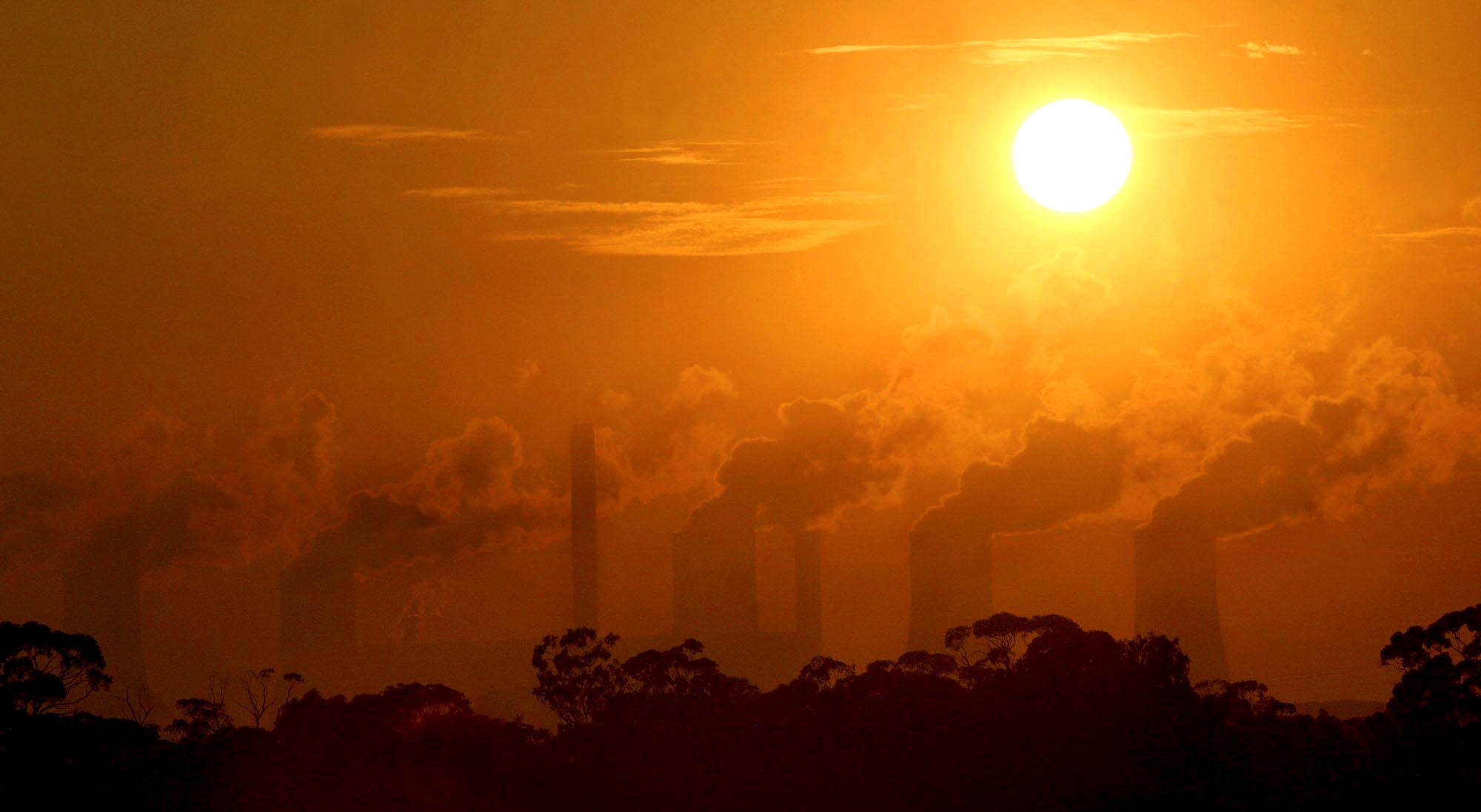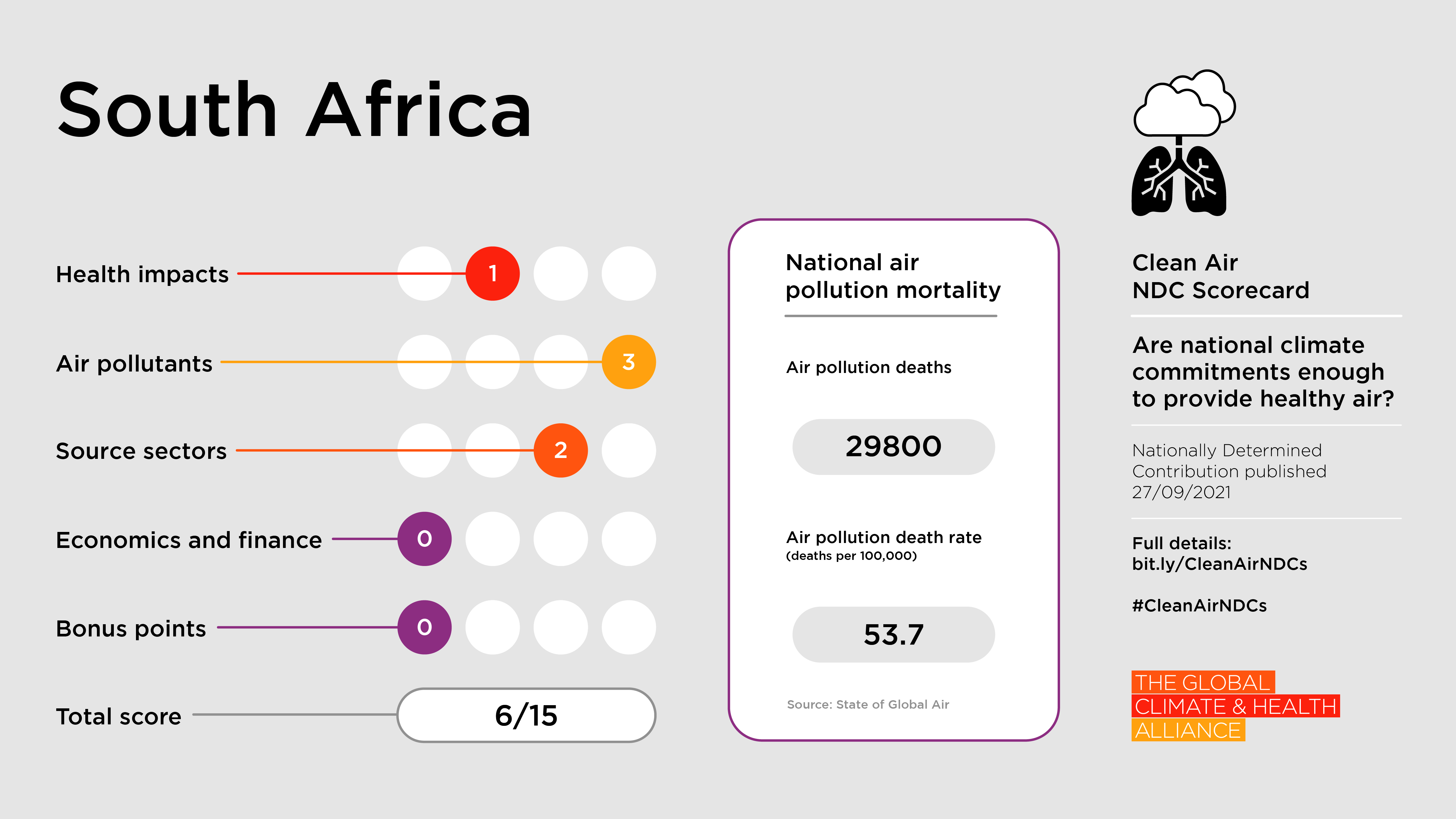HUMAN COST
More than 15,000 excess deaths feared if SA further deviates from plan to shut coal-fired power plants – study

What is the cost of extending the life of our coal plants? A new study finds that delaying the decommissioning of our coal fleet won’t help with load shedding, but it will cause thousands of air pollution-related deaths and comorbidities.
Right after Cape Town hosted Africa Energy Week 2023 – a thinly veiled greenwashing event that promoted pro-coal voices like author Alex Epstein who said, “It is deadly for Africa to forego fossil fuels” – a study has been released that highlights just how high the economic and human cost would be if we extend the life of our coal plants that are meant to be decommissioned.
A new report from the Centre for Research on Energy and Clean Air (Crea) found that if the decommissioning of SA’s coal plants only begins in 2030 or beyond, it would cause a projected 15,300 excess air pollution-related deaths and economic costs of R345-billion.
South Africa is the seventh-largest coal producer in the world, with 88% of our electricity produced coming from our coal fleet, meaning we are a significant contributor to greenhouse gas emissions – 14th in the world, and the top polluter in Africa.

An Eskom employee walks home from Grootvlei Power Station, Mpumalanga. (Photo: Julia Evans)
Under South Africa’s current Integrated Resource Plan (IRP), which sets out the energy mix plan for the next few decades, 11.3GW of coal power at seven old plants was scheduled to retire by 2030.
But in 2022, Eskom issued an “Emissions Reduction Plan” which altered some of the previously established decommissioning timelines of SA’s oldest coal-fired power plants by a few years.
For example, the decommissioning start date for Grootvlei, one of South Africa’s oldest power plants, was pushed back from 2018 to 2027.
However, in light of a worsening energy crisis, there was another drive from Eskom and the national government to delay all further decommissioning until 2030.
When Minister of Electricity Kgosientsho Ramokgopa visited Grootvlei Power Plant in March during his nationwide tour of Eskom’s power plants, he told the 350 workers there: “Grootvlei is an important player in the resolution of load shedding. We are searching for the megawatts and Grootvlei’s life can’t be up to 2027 because this country’s future goes beyond 2027.” This was met by applause.
Read more in Daily Maverick: Electricity minister Kgosientsho Ramokgopa to push for extending life of ageing coal-fired power station
Delaying the decommissioning process has since only gained more support.
The current IRP 2019 is currently under review and a new draft IRP is expected to be published for comment before the end of 2023. During the review process, it was proposed that the decommissioning of all coal power plants currently scheduled for decommissioning before 2030 be delayed until 2030 and beyond.
The Crea report also found that if the rate of decommissioning in the 2030s and 2040s is not accelerated from current plans, further delays to the decommissioning of other units would increase the health impacts of the delay to 32,300 deaths from air pollution, and economic costs of R721-billion.
Daily Maverick previously reported that, when Ramokgopa first indicated that he wanted to extend that time frame, Jesse Burton from the Energy Systems research group at the University of Cape Town, who provides analysis and policy advice on coal transitions in SA, said: “There is no economic reason to extend the running of a plant that was commissioned in the 1960s/1970s, except as an emergency measure, and if it were still needed as an emergency option after 2027, then that could only mean that SA has failed to build enough new affordable energy and the SA power system is in an even graver crisis.”
Health impacts
In Africa, air pollution is the second leading cause of premature mortality, exceeded only by Aids.
South Africa’s air pollution hotspots – where air quality does not meet (already inadequate) national air quality standards – include the Mpumalanga Highveld, the Vaal Triangle and the Limpopo Waterberg and Bojanala.
Crea said that Eskom’s fleet of coal power stations – of which 12 are located in the Mpumalanga Highveld and two in the Limpopo Waterberg – is responsible for most of the air pollution.
A 2017 study by UK-based air quality and health expert Mike Holland, who visited the South African coal belt, found that air pollution from coal-fired power stations killed more than 2,200 South Africans every year, and caused thousands of cases of bronchitis and asthma in adults and children annually.
Using the CALPUFF air dispersion model, a widely-used industry standard model for long-range air quality impacts of point sources, Crea was able to simulate air pollutant concentrations to project the health impact of air pollutant emissions from prolonging decommission of coal plants to begin after 2030.

Delaying shutdown of coal plants beyond 2030 is projected to cause 15,300 excess air pollution-related deaths. (Photo: Media 24)
The projected health impacts include 15,300 deaths, most of which are due to the exposure of fine particulate matter (6,200 deaths), which can cause chronic obstructive pulmonary disease, diabetes and ischaemic heart disease; and 1,500 deaths caused by lower respiratory infections, lung cancer and strokes.
The remaining deaths are attributed to exposure to sulphur dioxide (5,700 deaths) and nitrous oxide (3,500), which are harmful pollutants emitted by coal plants.
Other projected health impacts include 52,000 asthma emergency room visits, 9,300 new cases of asthma in children, 22,000 preterm births, 13 million days of work absence, and 18,000 years lived with disabilities.
This brings the estimated total economic costs of the health impacts to R340-billion.
The high court’s “Deadly Air” judgment from March 2022 confirmed that air pollution in the Highveld Priority Area breaches the constitutional right to an environment not harmful to health or wellbeing, and that the government must hold big polluters to account.
Ntombi-Zodwa Maphosa, an attorney with the Climate Change and Pollution Programme at the Centre for Environmental Rights, said of this report, “A decision made by the government that fails to protect people from serious known health risks constitutes a violation of people’s right to life and to an environment not harmful to their health and wellbeing.”
One closed coal power plant
To date, only one coal-fired power plant, Komati, has been retired – although not yet decommissioned.
Read more in Daily Maverick: Shut-down Komati Power Station first of its kind to be repurposed into renewable energy training facility
Crea estimated that from 2020 (when most units at the plant were placed in reserve) to 2023, the closure of the plant has already avoided negative health impacts including 220 deaths and R4.9-billion in health costs.
South Africa fares badly
At the 2015 UN Climate Change Conference (COP21) in Paris, SA (with 195 other nations) signed the Paris Agreement, which requires the country to submit its Nationally Determined Contributions (NDCs) every five years as a mechanism to track and reduce national emissions.
By extending the life cycle of coal-fired power stations, Ramokgopa previously told Daily Maverick that SA might be required to adjust the NDCs, but that these revisions wouldn’t stop them from meeting timelines.
NDCs submitted in 2020/21 had committed the country to keep annual greenhouse gas emissions in a range of 350 to 420 megatonnes of CO₂ equivalent by 2030.

The Global Climate and Health Alliance recently released the Clean Air NDC Scorecards, which assess the integration of air quality considerations into NDCs of 170 countries.
South Africa scored six out 0f 15, compared to the average score achieved in any NDC of 3.5/15 points. The scorecard also found South Africa had over 29,000 air pollution deaths.
Delaying won’t help with load shedding

The Crea report emphasised that of the country’s 52GW of dispatchable power capacity, the highest peak load this year was 33GW – meaning that around 38GW of reliably operating capacity would be sufficient to supply all demand and avoid load shedding in all circumstances.
“Delaying decommissioning would saddle Eskom with an oversized fleet, making it harder and more expensive to achieve reliable operation or install efficient emission control systems,” said the Crea report.
Daily Maverick has previously reported that extending the life of already old coal-fired plants would be expensive, as infrastructure would likely have to be replaced and upgraded, and plants would require retrofitting of emission abatement technology to meet new emission standards. DM



















 Become an Insider
Become an Insider
if this 15 000 people are saved,
how many will die anyway because of
murder, hiv, car accidents, old age, medical conditions etc?
maybe the stats will look better if we factor in all variables
Hahahahahahaha